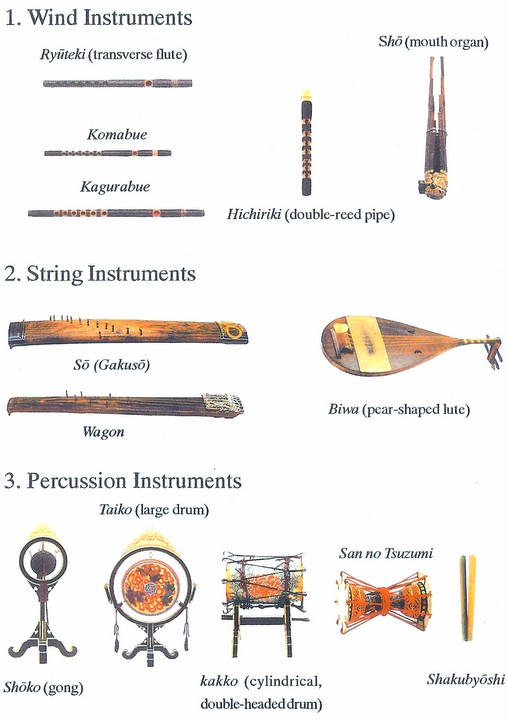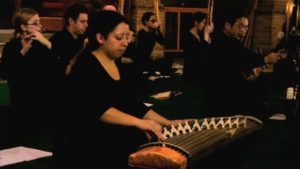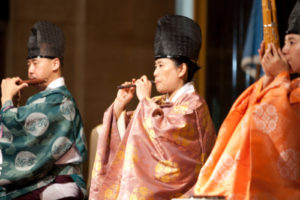IMJS: Institute for Japanese Cultural Heritage Initiatives
in collaboration with the Columbia Music Performance Program
THE SONGS OF OTOMAE (1086?-1169)
Restoring the Art of a Celebrity Singer
and Her Repertory of the Popular Songs of Her Day
This ongoing project grew out of the Institute’s earlier work to resurrect important Japanese women ignored by historians of Japan.
Otomae was a famous and charismatic 12th-century singer, who came from a long line of exclusively matriarchal, husband-less, self-regulating female singers belonging to a kind of hereditary guild known as kugutsu which specialized in contemporary popular songs known generally as imayō or “songs of today.” Emperor GoShirakawa (1127-1192; r. 1155-1158) was an impassioned fan of the genre, as had been his mother, Taikenmon’in. After Otomae retired professionally, taking lay vows of a Buddhist nun, the then Retired Emperor called her to his court and apprenticed himself to her so as to relearn directly from her the songs he already knew by heart and to learn how to sing her extensive treasured repertory. In the process he carefully wrote down the lyrics to hundreds of her songs, preserving them in a collection he called Ryōjin Hishō, which can loosely be translated as “Private Treasure of Superb Songs.” The word Ryōjin, taken from classical Chinese, implies “a voice that soars so that even the dust on the rafters tremble.”
Her lyrics, with their double-entendres, with depth and breadth, their Buddhist gospel, their erotic seductions, give voice to words and feelings and which even now, could be “songs of today.” Japanese writers from Yoshida Kenkō to Saitō Mokichi expressed admiration for their extraordinary emotional power. Her lyrics show clearly that she knew what ordinary people lived through and thus could find herself in the well-known songs of old days, could reinvest them and transform them. She found the “me” in every song, in the way Marion Anderson transformed Jordan and Bettye LaVette transformed Beatles songs.






 In conjunction with the Gagaku-Hōgaku Classical Japanese Music Curriculum and Performance Program at Columbia University, launched in September 2006, the Institute for Medieval Japanese Studies presents several public gagaku concerts and instrumental workshops to introduce the ancient music of Japan to a greater audience at Columbia University and in New York.
In conjunction with the Gagaku-Hōgaku Classical Japanese Music Curriculum and Performance Program at Columbia University, launched in September 2006, the Institute for Medieval Japanese Studies presents several public gagaku concerts and instrumental workshops to introduce the ancient music of Japan to a greater audience at Columbia University and in New York.